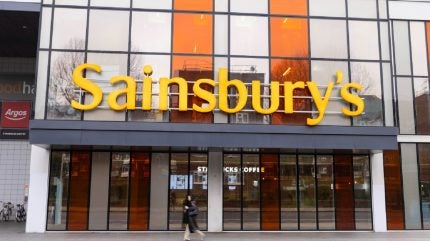
Supermarket chain Sainsbury’s has announced ambitious goals for reducing its greenhouse gas (GHG) emissions, which have been validated by the Science Based Targets initiative (SBTi).
The retailer was among the first UK retailers to set SBTi-validated targets in 2020 and has committed to a 68% reduction in its absolute scope 1 [from sources owned or controlled by a company] and 2 [from activities linked to a company but not directly owned or controlled by it] emissions by 2030, increasing its previous target of 50%.
The company has also revised its scope 3 emissions reduction target of 30% by 2030.
This target now includes two separate commitments with the operational target, encompassing transport, energy use and manufacturing sites, raised to 50.4%.
Sainsbury’s also reduced the validated targets for scope 3 GHG emissions from forests, land, and agriculture to 36.4% by 2030.
These new goals align with the retailer’s plan to become net zero in its own operations by 2035 and in its value chain by 2050, supporting the Paris Agreement’s aim to limit global warming to 1.5°C.

US Tariffs are shifting - will you react or anticipate?
Don’t let policy changes catch you off guard. Stay proactive with real-time data and expert analysis.
By GlobalDataThe retailer is urging its suppliers, particularly those contributing significantly to its scope 3 emissions, to establish approved science-based targets by the end of 2025 in collaboration with the WWF [World Wildlife Fund] Retailer Commitment for Nature.
Sainsbury’s corporate responsibility and sustainability director Ruth Cranston said: “Getting our updated targets validated by the SBTi is an important step forward. The effects of climate change are already very real so it’s vital that we act now to reduce emissions and protect and restore nature to help us build a resilient future for all.
“Our ambition to achieve net zero by 2050 will require transformation across our whole business and supply chains, as well as how we help our customers to make more informed choices. We can’t do this alone, so collaboration as an industry will be critical to drive the required change.”
The retailer has made strides in reducing GHG emissions within its operations and is progressing in its value chain.
It recently received an A rating from the Carbon Disclosure Project for its environmental commitments on climate change for the tenth consecutive year.
In March 2024 Sainsbury’s announced proposals to streamline its operations, resulting in the loss of 1,500 jobs.



